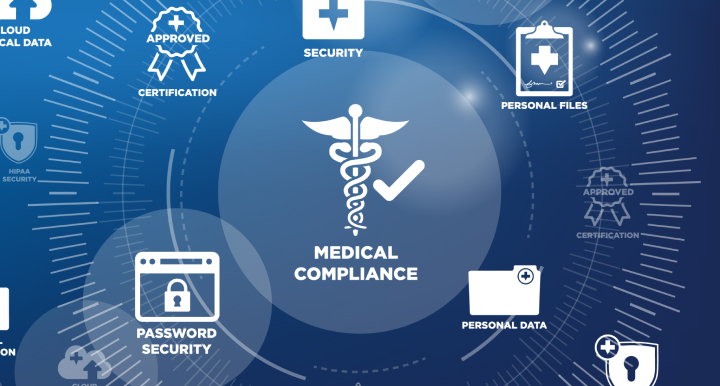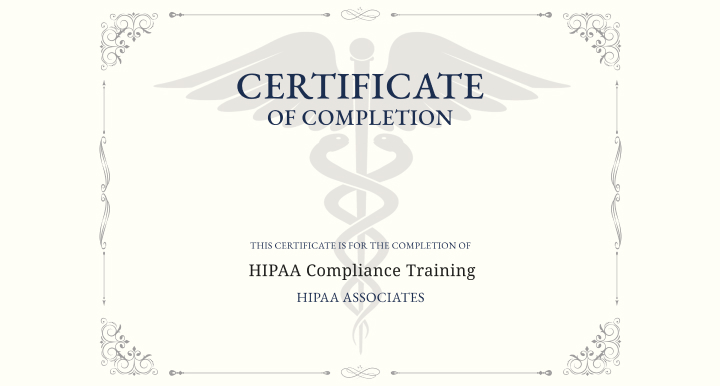HIPAA Compliance and the Role of Medical Scribes
Table of Contents
The universal acceptance of medical scribes raises concerns about the security and confidentiality of patient information. Healthcare providers understand the importance of complying with the Health Insurance Portability and Accountability Act (HIPAA) regulations when it comes to protecting patients' electronic protected health information (ePHI). HIPAA compliance is one of the top concerns for healthcare organizations considering medical scribe services.
To ensure HIPAA compliance, healthcare providers must thoroughly evaluate the scribe service before granting them access to patients' ePHI. In this article, we will provide a comprehensive overview of what healthcare providers need to know and ask to ensure that a human medical scribe or an AI medical scribe like Tali meets the necessary HIPAA compliance requirements.
Why does HIPAA Compliance Exist?

The Health Insurance Portability and Accountability Act, or HIPAA, was enacted in 1996 with the primary goal of safeguarding patients' health information and ensuring the secure handling of such data by healthcare providers and insurance companies. This pivotal legislation comprises two key components: the Privacy Rule and the Security Rule. The Privacy Rule sets forth national standards for preserving the privacy of Personal Health Information (PHI) and governing how this information can be used and disclosed. In contrast, the Security Rule establishes national standards for protecting electronic PHI (ePHI) maintained by covered entities.
In essence, HIPAA was designed to protect patients' health information and to guarantee that healthcare entities handle this data with utmost security. This privacy is paramount in fostering trust and in the prevention of identity theft and insurance fraud.
Benefits of HIPAA Compliance

Why is HIPAA compliance important for privacy and security? HIPAA establishes information security standards that all healthcare organizations must adhere to. It not only ensures that covered entities understand the risks associated with compromising patient data but also establishes critical safeguards for maintaining data security. Non-compliance can result in significant penalties.
HIPAA Violation Cases
HIPAA violations come in various forms, including impermissible uses and disclosures of PHI, failure to comply with individuals' rights, workforce training, sanctions failures, lack of Notice of Privacy Practices, and more. The consequences of violating HIPAA can be severe and can lead to substantial penalties.
As of the latest update in penalties, the severity of the violation and the actions taken by the responsible party determine the fines. There are four penalty tiers, ranging from reasonable efforts to neglect, and the penalties can range from $137 to $68,928 per violation, with an annual limit of $2,067,813.
HIPAA Compliance for Medical Scribes
A medical scribe is a trained professional who collaborates with physicians and other healthcare providers to document patient encounters in real-time. Their primary duty involves accurately and efficiently documenting the details of patient encounters, including medical history, physical examination findings, and the physician's assessment and plan.
HIPAA compliance is pivotal for medical scribes, given their responsibility for documenting patient encounters and handling sensitive patient information. Medical scribes must adhere to the same stringent information management, HIPAA, HITECH, confidentiality, and patient rights standards as other healthcare personnel.
Specific requirements and standards for medical scribes include capturing accurate and detailed documentation of encounters promptly, refraining from making independent decisions or translations beyond the provider's direction, and comprehensive training on documentation requirements, including the legible signature of the scribe, patient names, authentication, and more.
HIPAA Compliance Training and Certification

When considering a scribe service, healthcare providers should request detailed information about the service's HIPAA compliance training program. It is essential to ensure that the scribes receive regular updates and obtain HIPAA certification from an accredited industry resource. Scribes should also be trained on and compliant with the healthcare facility's specific HIPAA protocols. Look for scribe companies with ISO/IEC 27001:2013 certification, indicating their investment in people, processes, and technology to protect data. SOC 2 certification is an additional level of certification that focuses on trust services such as security, availability, processing integrity, confidentiality, and privacy. Cyber liability insurance is also crucial for protecting scribe services from internet-based risks related to IT infrastructure and activities.
How AI Medical Scribes Navigate HIPAA Challenges
AI medical scribes effectively address HIPAA challenges by adhering to the same protocols as human medical scribes. Their role revolves around documenting patient encounters precisely, capturing the words and actions performed by qualified healthcare providers during these interactions.
This table summarizes the comparison of human scribes and AI scribes in addressing HIPAA challenges and compliance:
| Aspect | Human Scribes | AI Scribes |
|---|---|---|
HIPAA Compliance Training and Certification | Human scribes must receive HIPAA training and certification. It's essential to ensure they stay updated on compliance requirements. | The vendor's documentation and privacy policy should commit them to HIPAA compliance. Ask the vendor to explain what measures they take to meet the standard. |
Technical Safeguards | Human scribes will require access to update records within your EHR, and so will need to comply with how your staff access and create data in that system. | AI scribes usually are separate from your EHR and can implement technical safeguards like encryption, access controls, audit trails, and data backups to protect sensitive patient information. |
Cybersecurity Measures | Human scribes will require access to update records within your EHR, and so will need to comply with how your staff access and create data in that system and any cybersecurity measures that you have in place already. | AI scribes can incorporate these cybersecurity measures to mitigate the risk of data breaches and cyberattacks. |
Monitoring and Assessment | Human scribes may not be as easily subject to continuous monitoring and assessment for accuracy and compliance with HIPAA standards. | AI scribes can be continuously monitored and assessed for accuracy and compliance, ensuring they meet HIPAA standards. |
AI medical scribes can be purposefully designed to align with HIPAA regulations by implementing various technical safeguards. These include encryption, access controls, audit trails, and data backups. These measures are instrumental in safeguarding sensitive patient information and maintaining compliance with HIPAA standards.
AI medical scribes can incorporate secure cloud computing, firewall protection, intrusion detection systems, and routine vulnerability assessments to further mitigate the risk of data breaches and cyberattacks. These steps fortify their defenses against potential security threats.
Transparency and explainability are key elements, allowing patients and clinicians to understand the inner workings of the AI system and how it impacts their privacy and security. AI medical scribe systems can continuously learn and adapt based on the diverse patient information they encounter. This ongoing learning process improves the accuracy and effectiveness of the AI over time. Patients do need to be aware that their data may be used in this manner.
Conclusion
HIPAA compliance is of paramount importance in the healthcare ecosystem, ensuring the privacy and security of patients' health information. It impacts all healthcare entities, including medical scribes, who play a crucial role in accurate and efficient documentation of patient encounters. Medical scribes must receive training on HIPAA regulations and continue to stay updated on compliance requirements. Understanding and adhering to HIPAA is a fundamental requirement for all healthcare professionals and technologies.
To ensure the confidentiality and security of patient information, Tali AI is compliant with HIPAA as well as the Personal Information Protection Act (PIPA) and the Personal Information Protection and Electronic Documents Act (PIPEDA). All of our services including our Ambient Scribe, AI dictation and drug monographs search are protected by layers of firewalls and monitoring solutions that look for suspicious activities to block before any secure information can be accessed.
FAQ
HIPAA compliance is pivotal for medical scribes, given their responsibility for documenting patient encounters and handling sensitive patient information. Medical scribes must adhere to the same stringent information management, HIPAA, HITECH, confidentiality, and patient rights standards as other healthcare personnel.
Specific requirements and standards for medical scribes include capturing accurate and detailed documentation of encounters promptly, refraining from making independent decisions or translations beyond the provider's direction, and comprehensive training on documentation requirements, including the legible signature of the scribe, patient names, authentication, and more.
When considering a scribe service, healthcare providers should request detailed information about the service's HIPAA compliance training program. It is essential to ensure that the scribes receive regular updates and obtain HIPAA certification from an accredited industry resource. Scribes should also be trained on and compliant with the healthcare facility's specific HIPAA protocols. Look for scribe companies with ISO/IEC 27001:2013 certification and SOC 2 certification. Cyber liability insurance is also crucial for protecting scribe services from internet-based risks related to IT infrastructure and activities.
Documentation and Administrative Tasks?